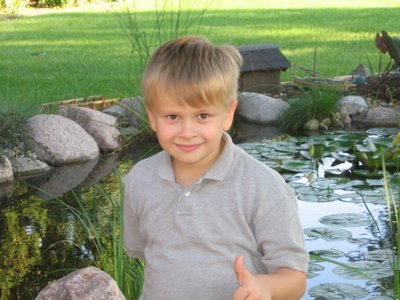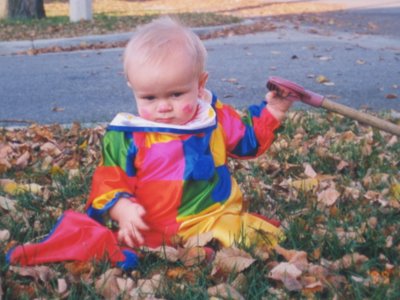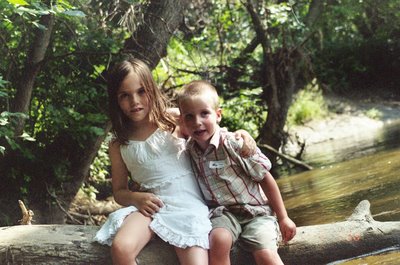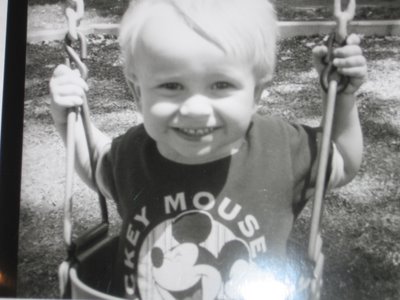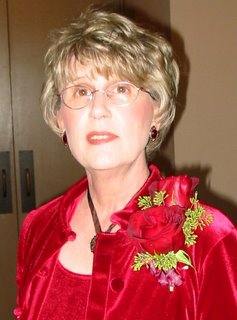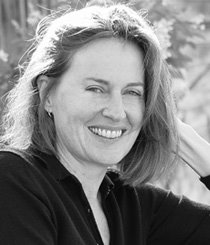 Julia, you had a very interesting childhood. You lived in Africa for many years, and you “went to an Italian missionary school and had a pet baboon. [Your] house was full of foundlings – a monkey, a lynx, various miniature African deer, a giant tortoise, a dog and two chickens.” Wow. First, what happened to the pet baboon? What was his name?
Julia, you had a very interesting childhood. You lived in Africa for many years, and you “went to an Italian missionary school and had a pet baboon. [Your] house was full of foundlings – a monkey, a lynx, various miniature African deer, a giant tortoise, a dog and two chickens.” Wow. First, what happened to the pet baboon? What was his name? I called her Babonghi. I don’t know where it came from, the name, I mean. She was a baby when she first came calling. I really loved her. She belonged to a woman who lived near us, a Somali Member of Parliament and she (the baboon) used to slip her chain and come to our house. We bonded, and she would hold onto me and I would cart her around. Eventually, the MP got sick of sending her servants over to retrieve her, so she let her stay. When we left Mogadishu I had to leave her behind so we gave her to an Italian couple. They let her go in the wild. I know adult baboons can be aggressive, but she was gentle and sweet. Our little monkey, on the other hand, was much more intense. If my brother and I fought, which we did all the time, she would dive bomb us from a tree, chattering and furious, ready to bite us. Come to think of it, my mother probably appreciated the help.
How does the landscape of your childhood affect the things that you write today?
I think children who grow up moving around a lot never really feel like they belong. I don’t mean that in a sad and pathetic way, but I think it is a sort of syndrome. I belonged to my family, but in every country we lived we were outsiders, different, and I definitely an outsider when I came to the States to visit. My mother was English, which confused matters a little more. So I think, though I tried at first to write a character who belonged to a small town, I realized early on in the process that she was going to be an outsider, no matter what. In her own way.
That's interesting, because Caroline Upcher (July 1st interview) said almost the exact same thing! You'll have to check out her interview--you two seem to have much in common.
After living in Africa, you moved to Italy, and you didn’t reach the States until you were 19. How many languages do you speak?
When we lived in Benghazi, in Libya, I started school at an Italian Missionary School. Both Libya and Somalia were ex-Italian colonies, with strong Italian presences. We were taught beginning Arabic there, but I don’t remember any of it, sadly enough. In Mogadishu we also went to the Italian mission school. Mog was a magical place to me – hot as an oven, small and dusty. And so many animals. People would come in from the bush and they’d have some starving creature for sale, in a box or on a string. We couldn’t pass up any of them.
Sorry, back to the languages. So at that school, we were also taught in Italian. The students were mostly Somali and Italian, I think. The nuns were lovely, warm and kind. I remember they wore white, and we learned the Italian national anthem, and did needlepoint. I’m sure we did some schoolwork, but I don’t remember it. And by noon, school was over because of the heat, and we went to the beach, miles of beach on the Indian Ocean.
When we moved to Rome I did one year at the Sacred Heart, the convent at the Trinitá dei Monti at the top of the Spanish Steps. The nuns there were very different from the missionary nuns. They encouraged the girls to tell tales on each other. I was Protestant, and every morning we prayed for all sinners and Protestants. I can’t imagine what they would have said if I’d been a Jew! It was a beautiful and austere place, filled with daughters of good Roman families. At the end of every school day one of the Sisters would police the front and shoo away any young bucks on motorcycles who were looking for their girlfriends. We went to Mass twice a week and wore veils and gloves, and all criticisms of us went back to our parents in French. I just saw online that the convent now takes in guests, dormitory style. If any one has been there, I’d love to hear about it! After a year, my parents thought it was time for me to start school in my own language, so when I was eleven I went to St. George’s English School. That was a melting pot! Forty some nationalities. I wore a maroon blazer and a tie and within a few years was skipping school and smoking hash in the basement along with all the other little brats. So, to answer your question, just English and Italian, and school-learned French! I rarely use my French and my Italian gets pretty rusty between visits.
But that is a fascinating education!
You started out as an actress, and you earned a SAG card while shooting a movie with Matt Dillon. Did you have a large part?
I played a young woman who ran the teen center where Matt and the other kids hung out. It was their picture, for sure. I had a couple of scenes, and played a pretty sympathetic character - I was lucky, most of the adults did not. It was Matt’s first picture, as it was for nearly all the other kids. A real adventure for all of us who had never made a movie before.
Now we have to look it up and watch it. :)
How did you meet your husband?
An old school friend of mine from Rome, someone I’d known since I was fourteen, was an editor for Metropolitan Home magazine. He had to do a shoot in some upscale restaurant downtown, so he asked me to join him there for lunch so he and I could sit in as real-people models for the shot. I was an out-of-work actor, I wasn’t going to pass up a free meal, so I went. I ended up marrying the photographer.
Together with your husband, you bought a restaurant and ran it for ten years. In your book the heroine works in a restaurant. Did you decide that this was a case of writing what you knew?
Actually, it was only four years, though it felt like ten. Definitely a case of writing what I knew. It was also a case of writing about an environment that I found interesting and quite dramatic in its own way. It was stressful, full of conflict, but was also full of fun. Interesting people and experiences, lots of comraderie. And it often reminded me of the theatre: lights, audience, backstage, fellow cast members, curtain time, villains, romance, etc.
Your novel, The Dark End of Town, has an intriguing premise. How did you come up with the idea? Is there a reason that you made your protagonist a widow?
I have a horrible feeling that I made her a widow just because I wanted to divest her of responsibility and simplify her life, in a way that I couldn’t or didn’t want to do with mine. So she has no mate that she had to deal with on a day-to-day basis. I think, after raising children, I craved a character who lived alone. Who was allowed to be lonely. She lives on a hillside in a trailer. Low maintenance and responsibility. With a couple of dogs. Any mothers out there who can understand my need?
I'm one of those mothers. I'm sure I'll enjoy that aspect of the book. I often reminisce about alone time.
What’s more stressful: trying to learn your lines for a movie or play, or trying to finish writing a book?
I am a few weeks away from my first real deadline so I have to say, without question, finishing a book. In a play, you’re part of something, you work with others so the pressure is distributed. And you learn a lot of your lines just by rehearsing. Yes, there’s that opening night craziness, but it’s very different from writing. Writing, you’re alone. It’s up to you if you pull it off or not. You can’t blame anyone else if your plot is trivial or you bore your readers.
What have you learned in the process of writing and publishing your first novel?
I’ve learned what a tough business it is. That there are a lot of terrific writers out there.
What do your children think of their mother the writer?
They’re both proud of me, I know. My daughter has read my book and wants to read the manuscript of the next one, to make sure I don’t let a lot of mistakes slide by. She wants to keep her eye on me. My son is a freshman in college, and reads a lot of non-fiction. He’ll get around to it one day.
What are you writing now?
I am writing a sequel to THE DARK END OF TOWN. Same character. This time she has to solve a mystery that happened twenty years earlier. And something weird is happening at the restaurant. Its working title is THE AMANUENSIS. Is that too odd? Or dry?
I think it's cool, but I have twice had my titles changed by my publisher, so I'm afraid you can't go by me!
If you could choose two mystery writers—one living, one dead, whom you could meet somehow and share a drink with them—who would they be? Why?
That’s tough. Here’s a combination I like: Wilkie Collins and Ruth Rendell in her Barbara Vine persona. I remember reading The Moonstone and Woman in White when I was really young. I loved them, so gothic and mysterious, and Victorian enough to please the most demanding. And I think there are few living writers I’ve enjoyed more than Barbara Vine. Remember A Dark Adapted Eye? If I were sitting with the two of them, I would drink steadily and wouldn’t say a word.
Great choice! What’s something you like to do when you’re not writing? Do you have hobbies that relax you?
Not really. I do a bit of this and that; but I don’t have a specific hobby. I wish I did. I have a friend who is going to teach me how to do a little pottery. So one day I may throw a pot. Or two. If I had lots of money I’d travel more.
How can readers find out more about you and your novel?
I have a website: www.juliapomeroy.com I like getting email; it gives me an excuse not to work.
Let’s see. I’ll be at Bouchercon at the end of the month, on a panel called: I’m Not My Character, Am I? I’ve never been on a panel before. It should be fun.
I will look for you there! Thanks, Julia.



